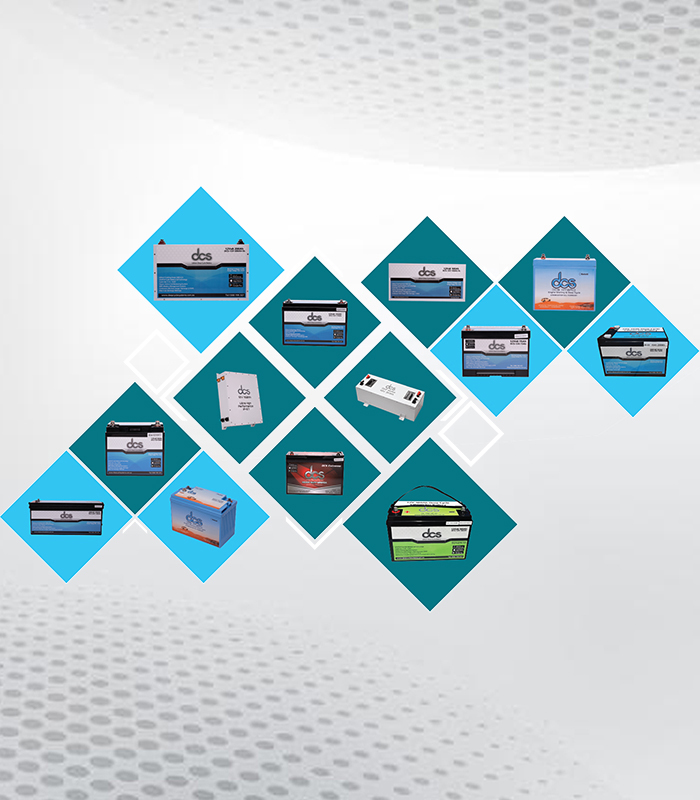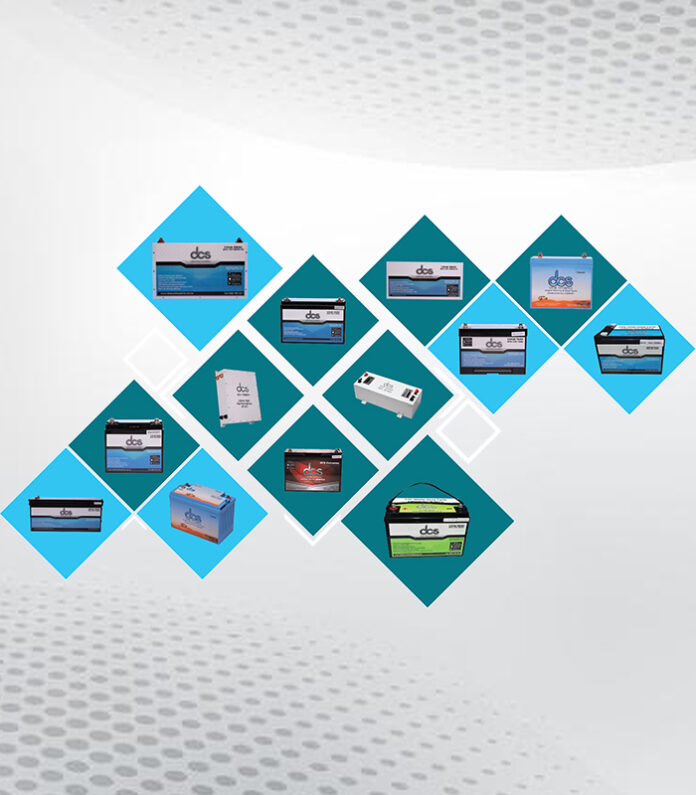Are you looking to set up a reliable and efficient energy storage system for your home or business? Look no further than Victron lithium batteries. These high-performance batteries are designed for long-lasting power and have become popular among consumers. Whether you are new to lithium batteries or already familiar with their benefits, this guide will provide you with all the information you need to set up a Lithium system. From understanding the technology behind these batteries to finding the right suppliers, we’ve got you covered.
Why Victron Batteries Are the Future of Energy Storage
Victron batteries have emerged as a leading solution in energy storage, attributed to their unparalleled energy density, longevity, and rapid charging features. These attributes render them exceptionally suitable for many applications, from storing energy harnessed from solar or wind sources to serving as dependable backup power supplies or even powering electric vehicles.
The technological advancements embedded within Victron batteries facilitate a storage solution that is not only environmentally benign but also economically viable. Their efficiency and reliability have established them as a favoured choice for individuals and businesses aiming to adopt clean energy solutions. Integrating Victron batteries into energy systems symbolises a significant step towards sustainable energy utilisation, marking them as a cornerstone of future energy storage technologies.
Why Choose Lithium Batteries?
Lithium batteries stand out for their superior energy density. This feature allows them to store more energy in a smaller space, thus making them exceptionally beneficial in scenarios where space and weight are at a premium. Compared to their lead-acid counterparts, they exhibit a remarkably lighter weight, enhancing their suitability for various applications.
Furthermore, lithium batteries are renowned for their extended cycle life, capable of enduring more charge and discharge cycles before their performance degrades. This aspect ensures a longer lifespan, reducing the need for frequent replacements and thereby offering a more cost-effective solution in the long term.
Another key advantage is their ability to support rapid charging and discharging, which proves crucial in high-demand settings. These benefits collectively underscore why lithium batteries are increasingly favoured for energy storage purposes, underscoring their role in facilitating the transition towards more efficient and sustainable energy systems.
Understanding the technology Behind the Victron Lithium Battery
The technology underpinning Victron Lithium Battery is a blend of advanced engineering and materials science designed to offer superior performance in energy storage. At its core, a Victron battery utilises lithium-ion technology and is renowned for its high energy density and efficiency. This allows for a compact size whilst delivering substantial power, making it ideal for various applications. The batteries are equipped with a sophisticated Battery Management System (BMS) that meticulously monitors and controls the battery’s operational parameters.
This system ensures the cells within the battery operate within their safe limits, effectively balancing the charge and discharge processes to optimise performance and extend the battery’s lifespan. The BMS also plays a crucial role in safeguarding the battery against common risks, such as overcharging, deep discharging, and temperature fluctuations, which can detrimentally affect the battery’s functionality and durability.
Key Considerations When Setting Up a Victron System
Several critical factors merit attention when embarking on the installation of a Lithium system. The system’s capacity and voltage requirements demand thorough evaluation to match the specific energy needs of the application. Compatibility with existing infrastructure plays a crucial role in ensuring seamless integration. The installation environment must be assessed to guarantee adequate ventilation, which is vital for the system’s longevity and safety.
Secure and properly insulated connections are paramount, reducing the risk of faults or inefficiencies. Engaging with a professional installer or technician with the requisite expertise is advisable to facilitate a correct and safe setup. This approach ensures that the Victron system is optimised for performance and durability, aligning with the goal of achieving a reliable and efficient energy storage solution.
The role of lithium battery suppliers
Lithium battery suppliers play a pivotal role in the ecosystem of energy storage solutions. Their expertise and dedication to innovation ensure that clients have access to batteries at the forefront of lithium-ion technology. These suppliers are not just distributors; they are partners in the energy transition, providing critical support that ranges from selection advice to post-purchase services.
They work closely with manufacturers like Victron to guarantee that the batteries on offer meet stringent quality and performance standards, ensuring compatibility with various systems. Furthermore, reputable suppliers contribute to the advancement of lithium battery technology by offering safer, more efficient, and more sustainable products.
Their role extends beyond mere transactional interactions, embodying a commitment to facilitating the deployment of renewable energy solutions globally. Through collaboration with these suppliers, users can navigate the complexities of integrating Lithium systems into their energy infrastructure, optimising their renewable energy investments.
Installation Tips for Victron Batteries
Proper installation is critical for Lithium batteries’ optimal functioning and longevity. These advanced energy storage solutions require careful handling and precise setup procedures to deliver their full potential. Here are key tips to consider during the installation process:
Understanding System Requirements
Before commencing installation, it is imperative to understand the specific system requirements thoroughly. This includes the energy capacity needed, the type of Lithium battery suitable for the application, and compatibility with existing power systems. A clear understanding of these aspects ensures a seamless integration process.
Optimal Placement
The location where the Victron batteries will be installed must be carefully chosen to ensure they operate within their optimal temperature range. Avoid areas prone to extreme temperatures or direct sunlight, which could impact the batteries’ performance and lifespan.
Correct Wiring and Connections
Ensuring that all wiring and connections are correctly and securely made is crucial. Incorrect wiring can lead to inefficiencies and potential hazards. To ensure safety and system reliability, it’s essential to follow the manufacturer’s guidelines for wiring configurations.
Ventilation
While Lithium batteries are known for their safety and efficiency, proper ventilation is key to longevity. Installing the batteries in a well-ventilated area ensures they adequately dissipate any heat generated during the charging and discharging.
Regular Inspections
After installation, regular inspections of the battery system can help identify and address any potential issues early. Checking connections, monitoring system performance, and ensuring the environment remains conducive to the battery’s optimal operation are all important post-installation steps.
Adhere to these tips to ensure smooth installation of Lithium batteries, paving the way for reliable and efficient energy storage.
Maintenance and Care for Lithium Systems
Ensuring the longevity and peak performance of Lithium systems necessitates a regime of diligent maintenance and care. This involves systematically monitoring the system’s operational parameters and vigilance for any deterioration or damage indications. Owners are encouraged to undertake periodic assessments, including examining terminals for cleanliness and the integrity of connections.
Such proactive measures are instrumental in averting potential disruptions and safeguarding the system’s efficacy. Furthermore, engaging in the routine upkeep tasks that contribute to the system’s sustained operation is prudent. These tasks encompass the cleaning of terminals to prevent the accumulation of debris and the meticulous scrutiny of connections to ensure they remain secure. Adherence to these practices aids in maintaining the Lithium system in optimal condition, thereby facilitating its continued reliable service in the myriad applications it supports.
Comparing Victron Batteries with Other Lithium Suppliers
In selecting an energy storage solution, it becomes imperative to juxtapose Victron batteries against offerings from other lithium suppliers. This comparative analysis evaluates critical parameters such as the batteries’ capacity, cycle life, warranty terms, and feedback from existing clientele. Such a comparison sheds light on the distinguishing features that set Victron batteries apart, notably their superior energy density and the advanced technology encapsulated within their battery management systems.
Furthermore, Victron’s reputation for producing batteries that offer reliable performance under diverse conditions is a testament to its commitment to quality and innovation. Through this meticulous assessment, potential users can discern the value proposition of Victron batteries in contrast to alternatives in the market. This process aids in making an enlightened decision, ensuring that the chosen lithium battery supplier aligns with their energy storage system’s specific requirements and expectations.
Maximising Efficiency in Lithium Air Battery
Maximising efficiency in Lithium Air Battery requires a nuanced understanding of their unique chemical and operational characteristics. These batteries, distinct from traditional lithium-ion counterparts, offer an extraordinarily high energy density due to their reliance on oxygen from the air as a reactant. This feature allows for the potential of much lighter and longer-lasting power sources.
However, to tap into this efficiency, researchers and developers are focused on overcoming challenges such as the battery’s shorter lifecycle and moisture and carbon dioxide sensitivity. Advanced material science plays a pivotal role in this endeavour, with efforts centred on creating more durable electrode materials and innovative protective membranes that can safeguard the battery’s reactive elements from atmospheric impurities.
Refining the battery’s architecture to enhance airflow and optimise the reaction process further boosts its efficiency. Lithium-air technology is being gradually perfected through these ongoing developments, holding the promise of revolutionising energy storage solutions by delivering unparalleled efficiency levels.
Navigating the Regulatory Landscape for Lithium Battery Installation
In installing Lithium systems, compliance with the prevailing regulatory framework and adherence to established safety standards is paramount. This involves thoroughly understanding battery storage, transportation, and disposal legislation. Additionally, electrical installation safety standards must be rigorously followed to ensure that the setup operates efficiently and aligns with legal requirements.
Individuals and businesses must remain abreast of these regulations, which may vary by jurisdiction, to facilitate a smooth and compliant installation process. Engagement with professionals knowledgeable in these regulatory nuances can prove invaluable in navigating this complex landscape. Through such diligent preparation and adherence to regulatory mandates, the deployment of Lithium systems can proceed without legal impediments, fostering a safe and compliant energy storage environment.
Conclusion
In wrapping up this exploration into the Victron lithium system, meticulous planning, precise attention to detail, and adherence to best practices in installation and maintenance form the cornerstone of deploying a reliable and efficient energy storage solution. Opting for the appropriate lithium batteries, engaging with esteemed suppliers, and abiding by the guidance offered by the manufacturer are pivotal steps that users must undertake to harness the benefits of a dependable energy storage system. With a strategic approach, the Lithium system stands poised to deliver clean and sustainable energy for the foreseeable future, epitomising a significant advancement in the quest for renewable energy solutions.

FAQ’s
What distinguishes Victron lithium batteries from other lithium battery options on the market?
Victron Lithium are noted for their superior energy density, advanced Battery Management Systems (BMS), and reliability across various applications, setting them apart from alternatives.
How often should Lithium systems be inspected for maintenance?
To ensure optimal performance and longevity, periodic assessments should be undertaken at least once a year or according to the manufacturer’s guidance.
Can Lithium batteries be integrated with existing solar or wind energy systems?
Yes, these batteries are designed to seamlessly integrate with renewable energy sources, providing an efficient solution for storing generated energy.
What is the significance of the Battery Management System (BMS) in Lithium batteries?
The BMS plays a crucial role in monitoring and controlling the battery’s operational parameters, ensuring safety and optimising performance and lifespan.
Are there specific environmental conditions that affect the performance of Lithium batteries?
Optimal performance is achieved when the batteries are installed in well-ventilated areas, away from extreme temperatures, as these conditions can impact battery efficiency and durability.
| Other Good Articles to Read |
| Blogs Rain |
| Cme Blog Spot |
| Garcias Blogs |
| Yyc Blogs |
| Blogs-Hunt |
| Impact-Blog |
| Smarty Blogs |
| Ed Blog |
| Mo Blogs |
| Blogs Em |
| Blogs T |
| Related Business Listings |
| Directory Submissions |
| Regional Directory |
